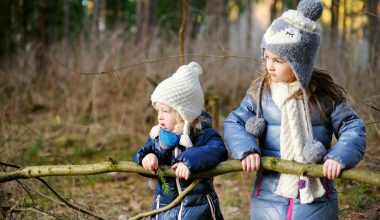American parenting trends come and go—one minute, everything is about “gentle parenting,” and the next, tiger moms are back in style.
There’s only one universal: everyone is exhausted, and the school newsletter is always asking for money.
Meanwhile, Danish parents are quietly raising some of the happiest, most resilient kids on the planet, all while looking suspiciously well-rested.
What’s their secret? Turns out, it’s not just the pastries (though those probably help).
Busy American parents, behold: five time-tested Danish parenting rules that just might make your life easier—and your home a whole lot happier.
1. Embrace Hygge for Real Family Connection
Hygge (pronounced: kind of like “hoo-gah,” but don’t sweat it, even Danes debate this) isn’t just about lighting candles and buying chunky knit blankets.
For Danes, it’s a way of life centered around coziness, togetherness, and savoring the simple moments with family.
Before you roll your eyes and think, “Great, another Pinterest trend I barely have time for,” know this: hygge is gloriously low-key.
It’s less about Instagrammable living rooms and more about small things—like eating pancakes for dinner at the kitchen table or reading under a blanket with everyone squished together.
Research from the University of Southern Denmark found that Danish families who regularly practiced hygge rituals experienced stronger relationships and lower stress levels.
The secret sauce? Rituals that foster belonging, not perfection. No one’s judging your dust bunnies, least of all the Danes.
Set aside one evening a week as “hygge night.” Phones go in a basket. Dinner is simple—maybe even just toast and hot chocolate.
Light a candle if you want, but the real magic is in feeling present and silly together. (Bonus points if you can keep the conversation from drifting to who needs to be driven where tomorrow.)
2. Prioritize Outdoor Play—Rain or Shine
American parents sometimes get twitchy when the weather isn’t perfect—meanwhile, Danish kids are zipping up their rain suits and heading to the playground in a downpour.
There’s an old Scandinavian saying: “There’s no such thing as bad weather, only bad clothing.” If you want happier, more independent kids, the Danes say, send them outside. A lot.
Danish preschools (called “forest kindergartens”) have children tromping through woods, building forts from sticks, and jumping in muddy puddles year-round.
No one bats an eye at a child arriving home with dirt in their ears and a worm in their pocket.
A study published in the International Journal of Environmental Research and Public Health backs up what Danish parents already know: extended outdoor play boosts children’s mental health, creativity, and problem-solving skills.
Start small and manageable: send the kids outside for half an hour after dinner, rain or shine. Introduce the “outdoor hour” as a non-negotiable part of family life.
If they grumble, you can always remind them that elsewhere, kids are learning to whittle butter knives from sticks (and the only screens they’re seeing are made of bark).
3. Trust Kids with Real Responsibility
Ask a Danish six-year-old to help chop veggies for dinner and you’ll see zero hesitation—except maybe for a quick negotiation over who gets to use the “fun” knife.
Danish parents believe children are capable of real, meaningful tasks, not just chores invented to keep them busy.
This is about more than teaching kids how to fold their shirts (though that’s handy). It’s about cultivating trust, competence, and, yes, actual independence.
Danes let their kids use real tools, walk to school solo at surprisingly young ages, and participate in family decisions.
The University of Copenhagen found that this approach builds true self-reliance: Danish kids report higher life satisfaction and lower anxiety than their American peers.
Turns out, being trusted to use the potato peeler works wonders for self-esteem.
Start by assigning a task your child can truly own—making a salad, feeding the dog, or planning Sunday breakfast. Resist the urge to “fix” the results.
A lumpy pancake never hurt anyone, and nothing says love like a sandwich made by a proud seven-year-old (even if it’s mostly mustard).
4. Practice No-Fuss Honesty
Danes famously don’t sugar-coat things for their kids. Conversations about tough topics—death, sadness, disappointment—aren’t hidden behind euphemisms.
The result? Kids grow up emotionally sturdy, with a healthy understanding that life has ups, downs, and the occasional existential crisis.
An expert in Danish culture, psychologist Jessica Joelle Alexander, explains that Danish parents see honesty as an act of trust and respect, not harshness.
Kids are allowed to be sad, angry, or bored, and adults don’t rush to “fix” every uncomfortable feeling.
When your child asks tricky questions (“Why do people die?” “Why is the dog eating poop?”), answer simply and truthfully, even if the answer is, “I don’t know, but I’m here for you.”
When one child snatches a toy from another, avoid the urge to stage-manage a cheerful apology—help them talk it out, acknowledge their feelings, and move forward.
No one enjoys a forced, chirpy “everything’s fine!” on a hard day. Danish parenting invites kids to be real, and offers a sturdy hand to hold through life’s messier moments.
5. Play is Sacred—No Tiger Mom Schedules
In Denmark, after-school hours aren’t a frantic blur of enrichment classes and competitive sports. Playtime—unstructured, often unsupervised, and gloriously “pointless”—is considered crucial for child development.
Research highlighted in the Harvard Graduate School of Education underscores the value of free play. Children given time for imaginative, child-led play develop better social skills, resilience, and creativity.
Danes make sure their kids have ample downtime to muck about, argue, make up, and dream.
Here’s the trick: not every hour needs to be productive. If your child is lying on the living room rug narrating elaborate adventures for a plastic dinosaur, resist the urge to suggest a “learning activity.”
According to Danish wisdom, that’s exactly the sort of “work” kids need.
Guard an hour after school or on weekends for pure, unscheduled play—no grown-ups hovering, no educational apps required. You might be shocked by what your kids invent when left to their own devices (not the glowing kind).
Danish Parenting, American Life
No one is suggesting you toss your iPhone in the nearest fjord or start serving pickled herring for breakfast.
Still, a few well-chosen Danish parenting ideas can mean more laughter, more peace, and fewer negotiations about screen time.
Invite a little hygge into your week, let the kids get deliciously muddy, trust them with something real, and tell the honest truth—even if it’s just “I have no idea what’s for dinner.”
Denmark’s secrets are refreshingly simple.
And who knows? You might just find yourself with a few minutes to actually enjoy that cup of coffee, while it’s still hot.




